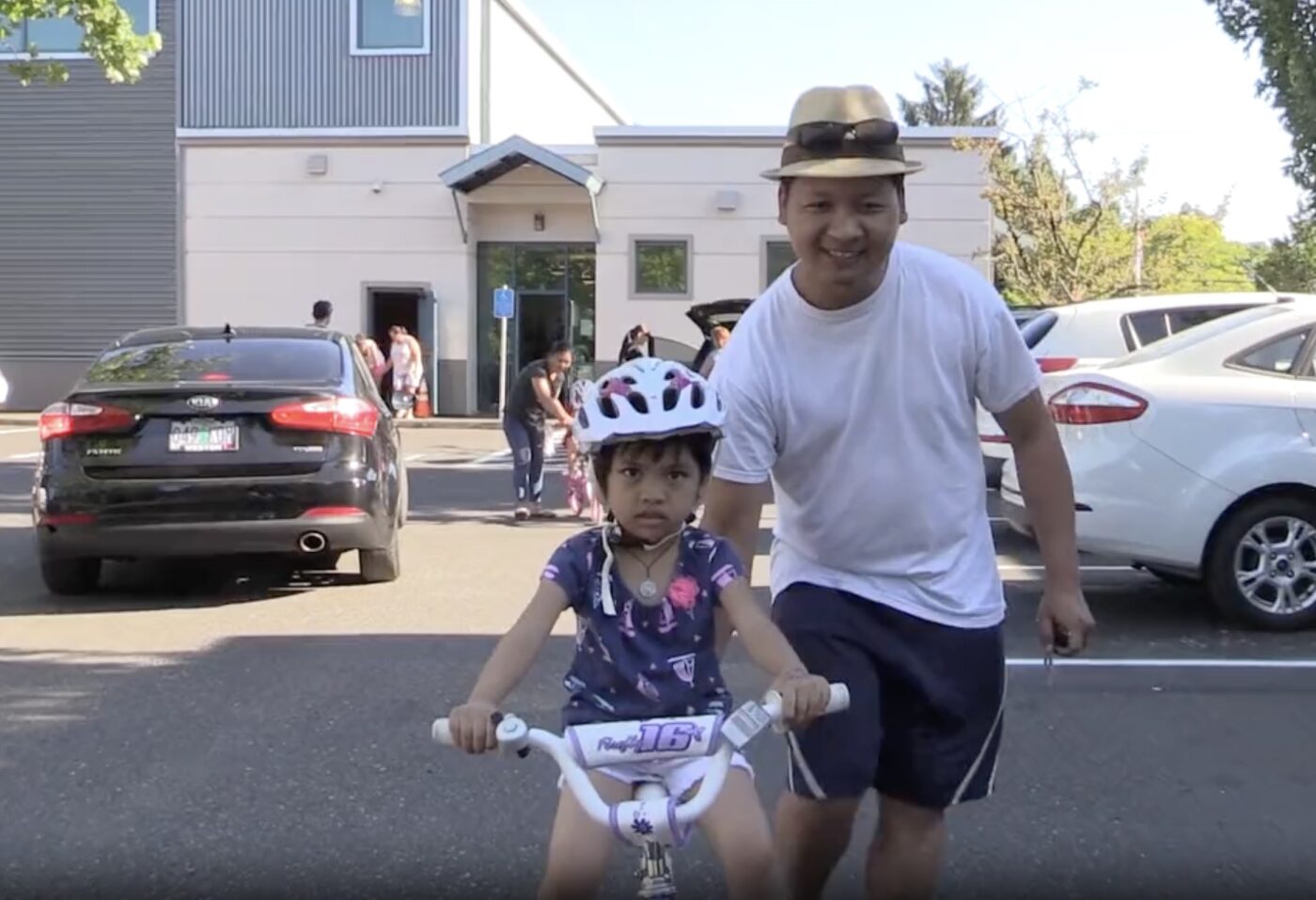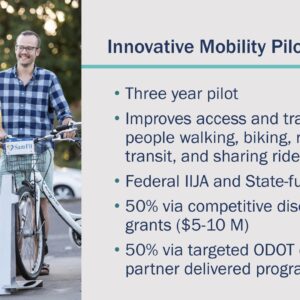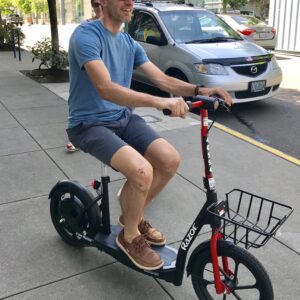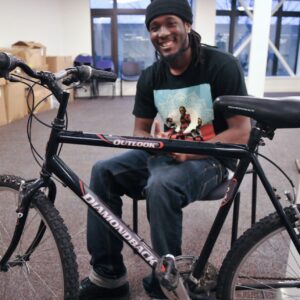
Bike repair clinics for homeless Portlanders, free bikes for refugees and immigrants, an electric cargo-bike library for underserved youth — those are just some of the 26 projects that have been awarded grants by the Oregon Department of Transportation’s Innovative Mobility Program.
This program was the idea of former Oregon Transportation Commission member Alando Simpson. It was launched in 2022 and is funded through $10 million set aside (out of a total of $412 million) from Oregon’s share of the federal Infrastructure Investment and Jobs Act passed in 2021 and $10 million from the state’s general fund.
ODOT has awarded over $330,000 in microgrants this go-round. Unlike the first round of grants in 2022, which were limited in size to just $5,000, these latest awards went up to $15,000. Preference for the grants are given to communities that are historically underserved and the idea is to make an immediate impact by funding projects that can reduce car use.
The grants were passed out statewide. Below are a few notable ones from Multnomah County:
- Blanchet House of Hospitality ($13,000): Host reoccurring bike repair clinic for people with low incomes and people experiencing homelessness.
- Free Bikes 4 Kidz Portland ($14,895): Expand bicycle safety programming and bicycle distribution to reach Veterans, immigrants, refugees, and students and families of Title 1 schools.
- ROSE Community Development Corporation ($15,000): Host bike camps and learn-to-ride events and purchase a bicycle fleet for youth at Rose CDC’s affordable housing complexes.
- Bike Works by p:ear ($15,000): Host various active transportation outreach events and provide bike safety gear to young, low income and homeless individuals.
- Community Cycling Center ($15,000): Support youth bicycle mechanic programming that occurs in alternative high schools.
- Play Grow Learn ($15,000): Host community bike rides and provide bicycle safety education. Create an e-cargo bike lending library in partnership with River City Bicycles.
- WashCo Bikes ($14,990): Expand bicycle safety programming and bicycle distribution to reach the Hispanic community and youth and families of Title 1 schools.
Next up for the program are more grant funding cycles and an expansion into study and assessment grants. To learn more, check out the Innovative Mobility Program page on ODOT’s website.







Thanks for reading.
BikePortland has served this community with independent community journalism since 2005. We rely on subscriptions from readers like you to survive. Your financial support is vital in keeping this valuable resource alive and well.
Please subscribe today to strengthen and expand our work.
$15,000 could be important money for some community effort to connect people to bikes and increase their mobility. It pales in comparison to the $2.7 million, at least, that ODOT put in the pockets of “consultants” to astroturf support for the Rose Quarter freeway expansion:
https://bikeportland.org/2024/09/05/willamette-week-exposes-pr-expenses-behind-i-5-rose-quarter-project-389337
Alando Simpson might have had a good idea sometime but he had exactly not much to say before logrolling hundreds of millions of dollars to spend on more car lanes.
I happened to be talking with someone recently who is only slightly post-refugee (and maybe even technically still is one), and he said he wanted to ride a bike but had nowhere to store it in his apartment building.
I did not suggest he put it in his living room.
Sturdy bike lockers would be one way to daylight intersections. Not too long ago the city was charging $200 a year for lockers which, by the square foot, is about how much it costs to live indoors. We give ourselves free car storage in most neighborhoods. I’m sure there’s a cost to administer lockers but a subsidy might be a good investment at a time when housing is at a premium and cars have so many externalities.